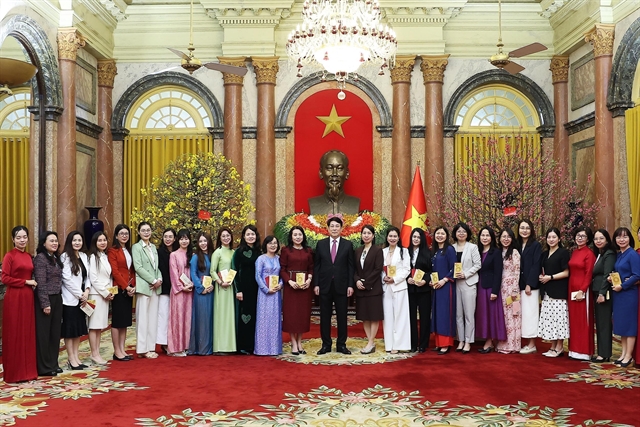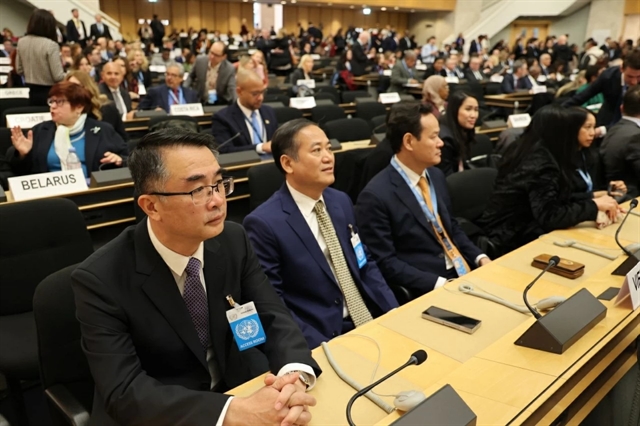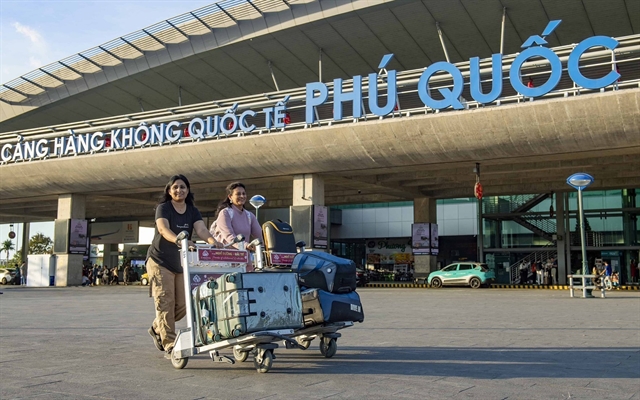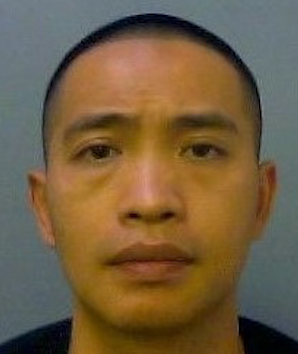 Society
Society

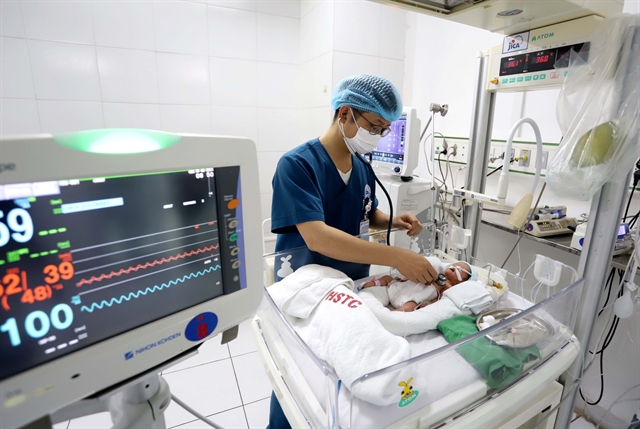 |
| A doctor examines a baby at the Intensive Care Unit in the Children’s Hospital, Thái Bình Province. — VNA/VNS Photo Thế Duyệt |
THÁI BÌNH — Racing against time to save the lives of paediatric patients in critical conditions, doctors and nurses in the Intensive Care Unit (ICU) of the Children’s Hospital in northern Thái Bình Province always have to work under immense pressure.
Seeing children recover day by day and reunite with family in a stable, healthy condition, the medical staff feel a huge sense of relief and encouragement.
The Intensive Care Unit of Thái Bình Children’s Hospital is treating 28 children including 19 in critical conditions with different diseases. Many of them have to be equipped with breathing machines or endotracheal intubation, making it difficult for them to even speak.
That’s why the unit is always the most quiet area of the hospital where only machine sounds can be heard.
Doctors and nurses have to be on duty around the clock and stay by the side of the young children to monitor their health as the illnesses can get more serious anytime.
The youngest patient was born at the 33rd pregnancy week, weighing only 1.5kg.
She was transferred to the ICU in the state of respiratory failure and must be isolated completely from her family.
Doctors and nurses at the unit are like the baby’s parents, trying to ensure she lives to grow strong with her natural parents.
Every time the supportive machines ring with abnormal sounds, the doctors and nurses quickly run into the baby’s room to check and offer healthcare responses.
Nurse Trần Thị Oanh said taking care of newborns is a tough job. It is much more difficult to care a premature baby.
“Because premature babies are vulnerable, and it is difficult for doctors to listen to their reflexes, we mainly rely on regular observation of skin colour combined with warning signals from medical devices for timely health problem response,” she told Vietnam News Agency.
“A few seconds of neglect or delay can cost the child's life. We often joke that we spend more time taking care of children at the hospital than taking care of our own.”
P.H.Q.V, born in 2016, is a special case being treated at the unit.
He was hospitalised at the age of just six weeks old and diagnosed with muscle weakness and respiratory failure.
Over the past eight years, he has been lying in the hospital bed breathing with the aid of a ventilator.
While his parents have to work far away to afford the treatment expenses, his grandmother, 70 years old, is the only relative taking care of him at the hospital.
His grandmother Vũ Thị Thách, said: "Day or night, every time we need assistance, doctors and nurses are always ready to help."
“Welcoming the Lunar New Year holiday at the hospital, we feel warm inside thanks to the doctors and nurses who always stay by our side,” she said.
“Over the past eight years, there were many times we wanted to give up. But thanks to the healthcare workers’ encouragement, our family has been given confidence in the illness fighting journey.”
Dr Hoàng Tiến Thành, head of the Intensive Unit Care, said the unit has 27 healthcare workers including eight doctors and 19 nurses, mostly young staff.
Doctors and nurses have to take turns to be in charge of the special treatment room where severely-ill children are quarantined with their relatives.
He said: “Every occupation has its own pressures, but the pressure is many times greater to medical workforce because our job links directly to the health and life of patients. The biggest happiness and motivation of the doctors and nurses is to see the children recover and return to their home.”
Dr Đỗ Mạnh Dũng, deputy director of Thái Bình Children’s Hospital, said intensive care is one of areas given priority at the hospital with an aim of offering on-site treatment for local people, reducing pressure for central hospitals.
The hospital has paid attention to improving healthcare workers’ capacity by holding in-depth training courses instructed by experts from the Central Children’s Hospital and other leading hospitals, he said.
The unit has also been equipped with modern equipment for care, treatment and resuscitation such as high-function ventilators, dialysis and ECMO machine. — VNS


